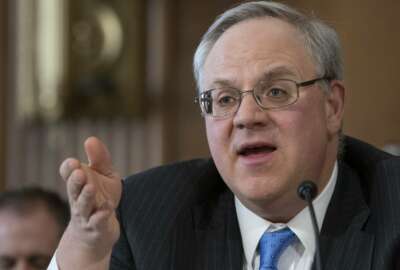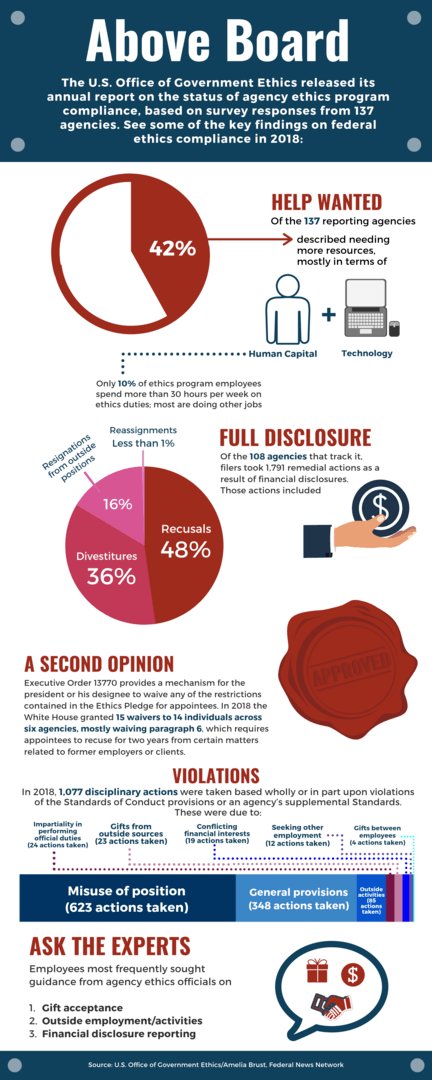
Federal ethics programs still struggling with manpower, report shows
The latest Annual Agency Ethics Program Questionnaire from the Office of Government Ethics shows things are not getting any easier for employees responsible for...

The latest Annual Agency Ethics
Program Questionnaire from the Office of Government Ethics shows things are not getting any easier for employees responsible for running federal oversight programs.
From 2017 to 2018, the proportion of career employees among designated agency ethics officials dropped three percentage points from 90% to 87% . In addition, fewer ethics officials are performing those duties full-time, with only 10% in 2018 versus 11% in 2017.
But the compliance rate for filing public and confidential financial disclosures held steady at 99%.
A common concern stated in this year’s report was that human capital and technology challenges remain top of mind for agency ethics programs.
The 2018 annual report reflected changes in the OGE’s questionnaire, as well as new requirements that human resources officials
must notify ethics officials within specified time frames regarding the status of employees
as financial disclosure filers.
Most agencies met the new deadlines — within 15 days — to report appointments to public financial disclosure positions to the DAEO, according to the document.
The full report can be found on OGE’s website.
Interior restructuring ethics program
Elsewhere in the federal ethics sphere, this week the Interior Department announced that it intends to consolidate its 13 programs into one. Secretary David Bernhardt said in a statement outlining the changes that the move will streamline the reporting structure for ethics personnel, establish the Departmental Ethics Office and clarify roles and responsibilities for employees.
Scott de la Vega, a career official and the current director of the Departmental Ethics Office and Designated Agency Ethics Official, will oversee ethics operations for Interior. Previously, the heads of each of the department’s bureaus and offices operated ethics programs with varying staffing and operational standards, Bernhardt said, adding that some programs even lacked ethics officials altogether.
Interior’s ethics program has also come under scrutiny from lawmakers thanks to investigations into former Secretary Ryan Zinke and a report from the Government Accountability Office in March, which said four vacancies in the ethics program vacancies hindered its ability to “properly document policies and procedures as well as file and review financial disclosure forms.”
Copyright © 2025 Federal News Network. All rights reserved. This website is not intended for users located within the European Economic Area.
Amelia Brust is a digital editor at Federal News Network.
Follow @abrustWFED





